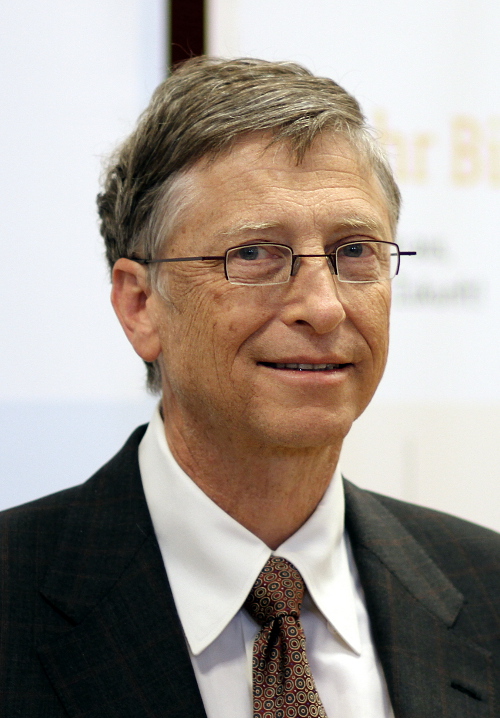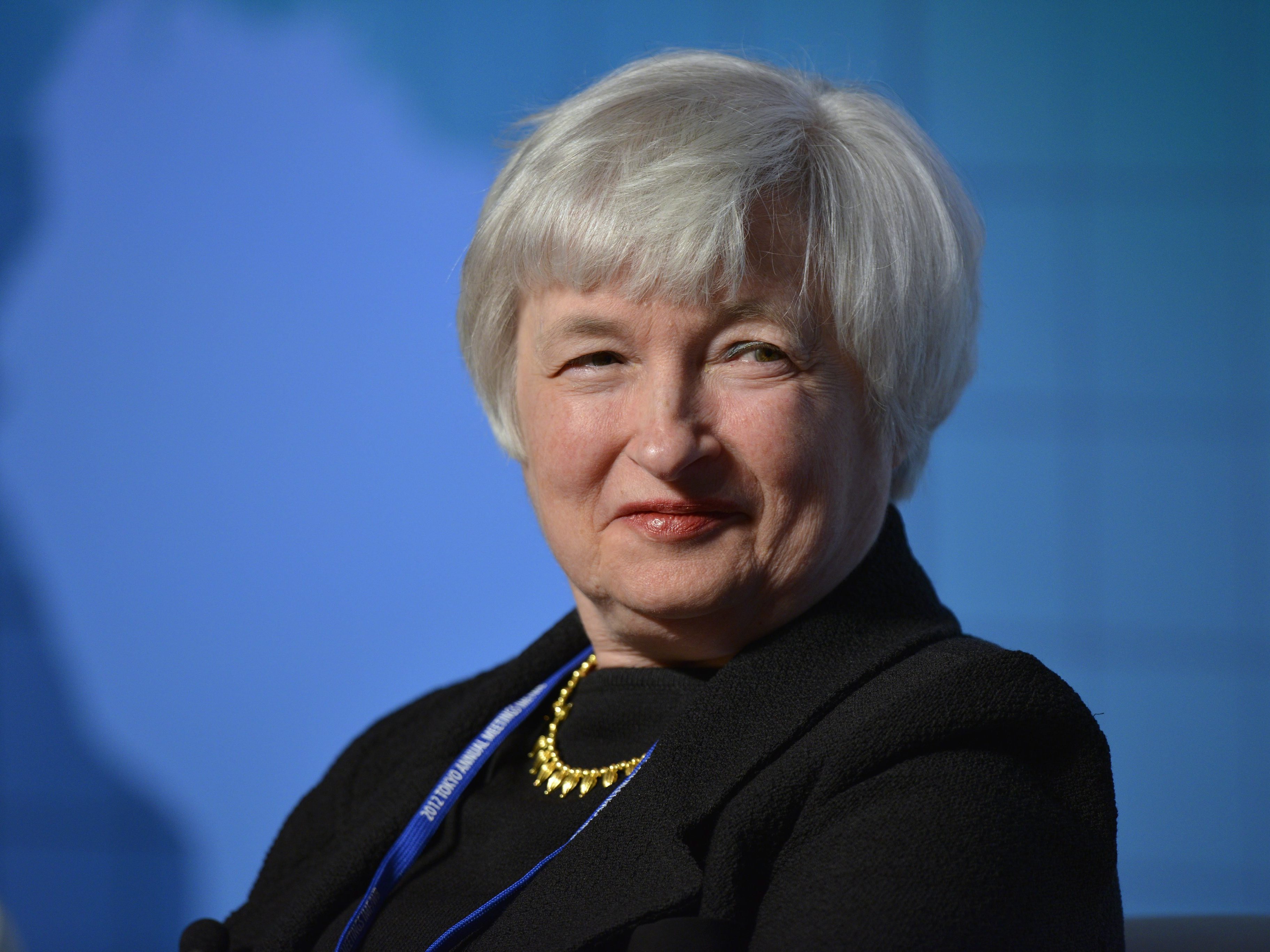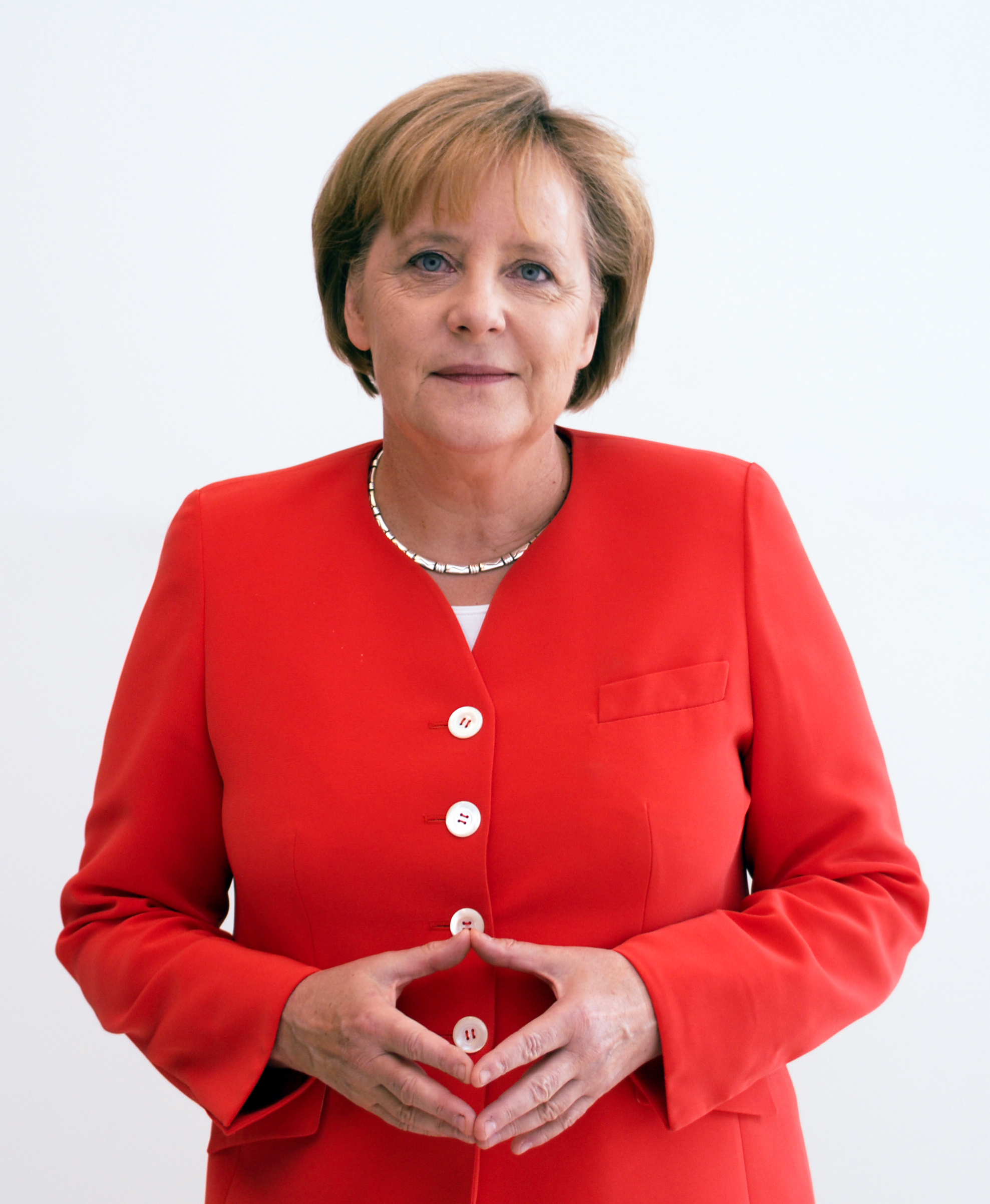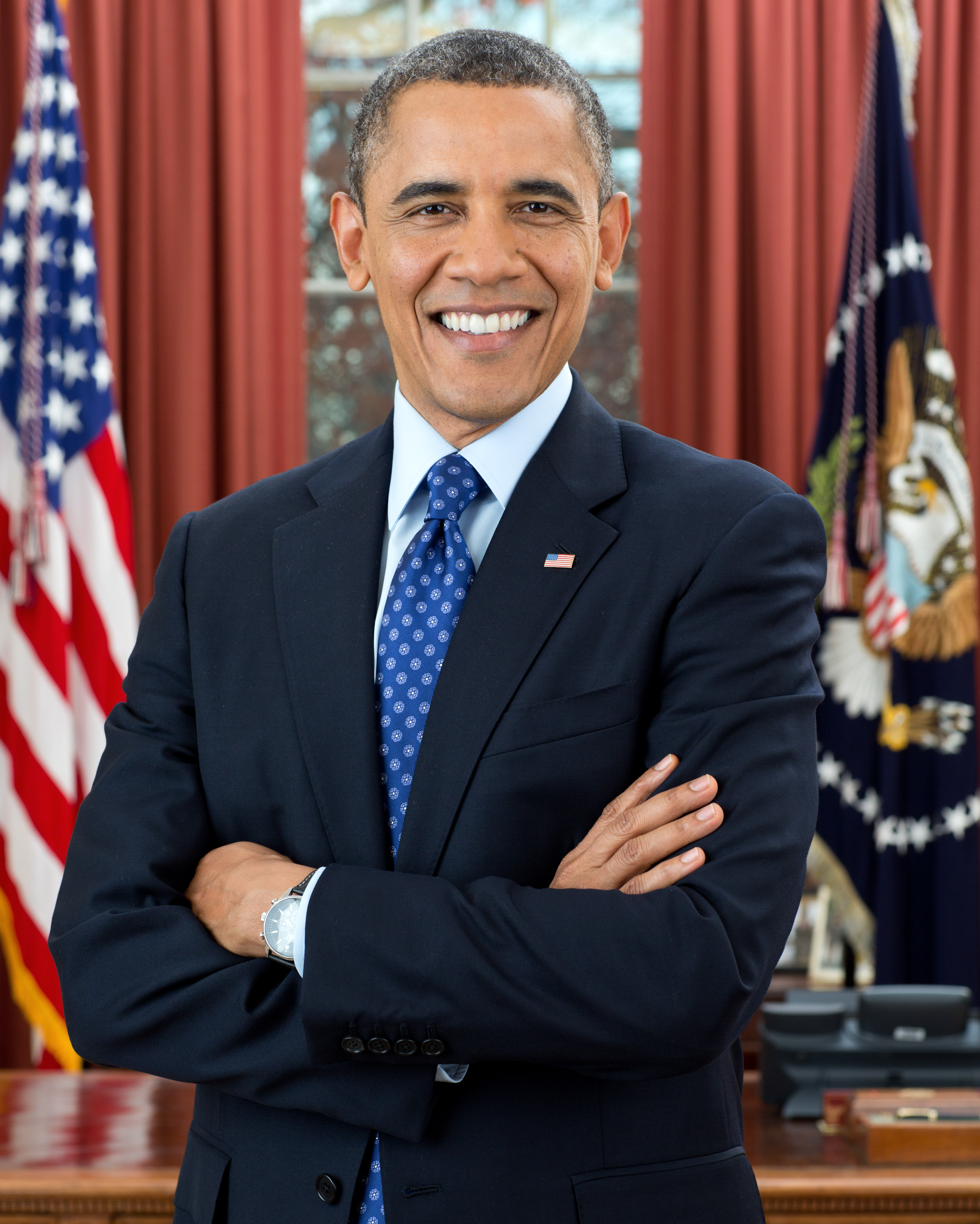Forbes has released its annual 'The World's Most Powerful People' list - so who's on it?
For the last five years, American business magazine Forbes has published a list of the world's most powerful people alongside its traditional rich list. The new edition is out today, so without further ado, let's take a look at the top ten.
No.10: David Cameron
 David, as I'm sure most of you are aware, is our own darling Prime Minister. Educated at Eton and Oxford University, he was elected to the House of Commons in 2001 for Witney in Oxfordshire. As the current Prime Minister of the United Kingdom, he is in overall charge of the seventh-richest economy in the world and the sixth-best-funded military. Cameron has climbed a place since last year, presumably due to his stronger position internationally in the wake of a successful vote for 'No' in the Scottish Independence referendum and the increase in the UK's GDP. It should be noted, however, that this power is highly conditional; upon the favour of his increasingly fractious party, and of course upon the outcome of the General Election next May.
David, as I'm sure most of you are aware, is our own darling Prime Minister. Educated at Eton and Oxford University, he was elected to the House of Commons in 2001 for Witney in Oxfordshire. As the current Prime Minister of the United Kingdom, he is in overall charge of the seventh-richest economy in the world and the sixth-best-funded military. Cameron has climbed a place since last year, presumably due to his stronger position internationally in the wake of a successful vote for 'No' in the Scottish Independence referendum and the increase in the UK's GDP. It should be noted, however, that this power is highly conditional; upon the favour of his increasingly fractious party, and of course upon the outcome of the General Election next May.
No. 9: Sergey Brin & Larry Page
The Google co-founders are in joint-ninth place; this is a considerable jump from seventeenth last year. They own 14% of the company, and control 56% of its stockholder voting power - this gives the Stanford University classmates, then, effective control of the company. With an equity of over $87 billion as of last year, and still rising, it is the third biggest company by market value in the world. Brin and Page's power comes not just from Google's value, though, but also from its domination (65%) of global online search traffic and the influence this gives them in controlling the flow of information. With Google seemingly unstoppable in its rise, they could well have ascended still higher by next year.
No. 8: Mario Draghi
Draghi is probably one of the least well-known names on this list; as President of the European Central Bank, though, he is one of the most powerful men in Europe, essentially at the heart of EU monetary policy since 2011. Though very much a behind-the-scenes individual, Draghi's power should not be underestimated - particularly in the current economic climate, where the recommendations of this institution do so much to determine the destiny of the EU as a whole. As the man responsible for propping up much of the European financial sector, the Roman banker, despite his unobtrusive public role, is one of the big beasts of European politics.
No. 7: Bill Gates

Bill Gates has slipped a place since last year - though he retains pole position in the parallel rich list. The Microsoft founder is no longer Chairman of the company, nor - since May - the largest shareholder; he does, however, still own a significant interest in the computer giant, and as co-trustee of the Bill & Melinda Gates Foundation is one of the world's major philanthropists. His personal fortune and extensive network of contacts are the reason for his position on the list; his huge personal following is also a major asset - his participation in the ALS Ice Bucket Challenge was one of the major steps in its mass popularisation, for example.
No. 6: Janet Yellen
 Yellen is the new Chairman of the Federal Reserve: the huge, complex, semi-independent system of financial institutions which acts as the central bank of the USA. The Reserve is partly private in ownership, and exists to serve the interests of private banking firms as much as the state; it is, nevertheless, responsible for monetary policy and some aspects of economic policy within the USA. Yellen is the first woman to helm the gargantuan financial system; she has been described as a 'dove', meaning her focus is on keeping unemployment low rather than inflation - though both are important parts of her mandate.
Yellen is the new Chairman of the Federal Reserve: the huge, complex, semi-independent system of financial institutions which acts as the central bank of the USA. The Reserve is partly private in ownership, and exists to serve the interests of private banking firms as much as the state; it is, nevertheless, responsible for monetary policy and some aspects of economic policy within the USA. Yellen is the first woman to helm the gargantuan financial system; she has been described as a 'dove', meaning her focus is on keeping unemployment low rather than inflation - though both are important parts of her mandate.
No. 5: Angela Merkel

A consistent holder of the number five spot, the German Bundeskanzler is the pre-eminent politician within the European Union, with Germany the largest economic power within the union. As with any elected politician, her position on the list is of course vulnerable to electoral fortunes; however, the fact she has been in power for nine years and remains popular suggests Merkel will not be disappearing from the upper echelons of power any time soon. Her current challenge is, along with Mario Draghi, to prevent the Eurozone from slipping back into recession - that and dealing with the recalcitrant Cameron and the UK's flirtations with an EU exit.
No. 4: Pope Francis I
 The Catholic leader has maintained his fourth place position from last year; as the only religious leader in the top ten, Francis is something of an oddity among the ranks of politicians, bankers and entrepreneurs. The 77-year-old Argentinian is the first non-European Pope in over 1200 years; more, he has proved himself a zealous reformer, making an effort to strip some of the ostentatiousness and politicking from the Vatican. He has made himself no few enemies in the process, but - the days of Papal regicide being surely behind us - there is little they can do. Francis remains dedicated to catholic doctrine, however, and his influence over the 1.2 billion Catholics worldwide cannot be underestimated.
The Catholic leader has maintained his fourth place position from last year; as the only religious leader in the top ten, Francis is something of an oddity among the ranks of politicians, bankers and entrepreneurs. The 77-year-old Argentinian is the first non-European Pope in over 1200 years; more, he has proved himself a zealous reformer, making an effort to strip some of the ostentatiousness and politicking from the Vatican. He has made himself no few enemies in the process, but - the days of Papal regicide being surely behind us - there is little they can do. Francis remains dedicated to catholic doctrine, however, and his influence over the 1.2 billion Catholics worldwide cannot be underestimated.
No. 7: Bill Gates
Bill Gates has slipped a place since last year - though he retains pole position in the parallel rich list. The Microsoft founder is no longer Chairman of the company, nor - since May - the largest shareholder; he does, however, still own a significant interest in the computer giant, and as co-trustee of the Bill & Melinda Gates Foundation is one of the world's major philanthropists. His personal fortune and extensive network of contacts are the reason for his position on the list; his huge personal following is also a major asset - his participation in the ALS Ice Bucket Challenge was one of the major steps in its mass popularisation, for example.
No. 6: Janet Yellen
 Yellen is the new Chairman of the Federal Reserve: the huge, complex, semi-independent system of financial institutions which acts as the central bank of the USA. The Reserve is partly private in ownership, and exists to serve the interests of private banking firms as much as the state; it is, nevertheless, responsible for monetary policy and some aspects of economic policy within the USA. Yellen is the first woman to helm the gargantuan financial system; she has been described as a 'dove', meaning her focus is on keeping unemployment low rather than inflation - though both are important parts of her mandate.
Yellen is the new Chairman of the Federal Reserve: the huge, complex, semi-independent system of financial institutions which acts as the central bank of the USA. The Reserve is partly private in ownership, and exists to serve the interests of private banking firms as much as the state; it is, nevertheless, responsible for monetary policy and some aspects of economic policy within the USA. Yellen is the first woman to helm the gargantuan financial system; she has been described as a 'dove', meaning her focus is on keeping unemployment low rather than inflation - though both are important parts of her mandate. No. 5: Angela Merkel

A consistent holder of the number five spot, the German Bundeskanzler is the pre-eminent politician within the European Union, with Germany the largest economic power within the union. As with any elected politician, her position on the list is of course vulnerable to electoral fortunes; however, the fact she has been in power for nine years and remains popular suggests Merkel will not be disappearing from the upper echelons of power any time soon. Her current challenge is, along with Mario Draghi, to prevent the Eurozone from slipping back into recession - that and dealing with the recalcitrant Cameron and the UK's flirtations with an EU exit.
No. 4: Pope Francis I
 The Catholic leader has maintained his fourth place position from last year; as the only religious leader in the top ten, Francis is something of an oddity among the ranks of politicians, bankers and entrepreneurs. The 77-year-old Argentinian is the first non-European Pope in over 1200 years; more, he has proved himself a zealous reformer, making an effort to strip some of the ostentatiousness and politicking from the Vatican. He has made himself no few enemies in the process, but - the days of Papal regicide being surely behind us - there is little they can do. Francis remains dedicated to catholic doctrine, however, and his influence over the 1.2 billion Catholics worldwide cannot be underestimated.
The Catholic leader has maintained his fourth place position from last year; as the only religious leader in the top ten, Francis is something of an oddity among the ranks of politicians, bankers and entrepreneurs. The 77-year-old Argentinian is the first non-European Pope in over 1200 years; more, he has proved himself a zealous reformer, making an effort to strip some of the ostentatiousness and politicking from the Vatican. He has made himself no few enemies in the process, but - the days of Papal regicide being surely behind us - there is little they can do. Francis remains dedicated to catholic doctrine, however, and his influence over the 1.2 billion Catholics worldwide cannot be underestimated.No. 3: Xi Jinping
Xi is China's 'Paramount Leader', holding the three offices of General Secretary of the Communist Party, president of the People's Republic and Chairman of the Central Military Commission. China is now the world's largest economy and has the largest standing army; it threatens the USA, therefore, as the dominant global power. Chinese decision-making is now more consensual than in previous years, but Xi nevertheless wields huge power within the authoritarian People's Republic. He has undertaken reforms to reduce corruption and increase the importance of markets within the Chinese economy.
No. 2: Barack Obama
 The IS insurgency in Iraq and Syria, the turbulence in Missouri over the murder of Michael Brown and consistent clashes with the Republicans stopped Obama from claiming the top spot for the second year in a row. His position as he heads into the final quarter of his Presidency is rocky and, though he heads a growing US economy, his de facto power has been severely curtailed by the Republican seizure of the Senate in the US Midterms. This will necessitate a focus on foreign policy in the last two years of his premiership, but IS and the situation in the Ukraine may well be too difficult for him to resolve. In summary, this man - whilst powerful on paper - is in reality relatively toothless in the face of concerted opposition at home and abroad.
The IS insurgency in Iraq and Syria, the turbulence in Missouri over the murder of Michael Brown and consistent clashes with the Republicans stopped Obama from claiming the top spot for the second year in a row. His position as he heads into the final quarter of his Presidency is rocky and, though he heads a growing US economy, his de facto power has been severely curtailed by the Republican seizure of the Senate in the US Midterms. This will necessitate a focus on foreign policy in the last two years of his premiership, but IS and the situation in the Ukraine may well be too difficult for him to resolve. In summary, this man - whilst powerful on paper - is in reality relatively toothless in the face of concerted opposition at home and abroad.No. 1: Vladimir Putin
 The Machiavellian Russian President has edged his American counterpart into first place for the second year running, and indeed the last year has gone fairly well for Putin. He has achieved an astounding level of control within the Russian Federation itself and now, with the Crimea back under Russian control and the east of the Ukraine dissolving into chaos - to the Russians' benefit - his position regionally is strong indeed. Putin suffers from a problem in international opinion, of course - but that doesn't seem to bother the man; nor the Chinese, who have just agreed a $70 billion gas pipeline deal with the increasingly rogue northern state. Putin will not be easily dislodged from first place on this list.
The Machiavellian Russian President has edged his American counterpart into first place for the second year running, and indeed the last year has gone fairly well for Putin. He has achieved an astounding level of control within the Russian Federation itself and now, with the Crimea back under Russian control and the east of the Ukraine dissolving into chaos - to the Russians' benefit - his position regionally is strong indeed. Putin suffers from a problem in international opinion, of course - but that doesn't seem to bother the man; nor the Chinese, who have just agreed a $70 billion gas pipeline deal with the increasingly rogue northern state. Putin will not be easily dislodged from first place on this list.


No comments:
Post a Comment